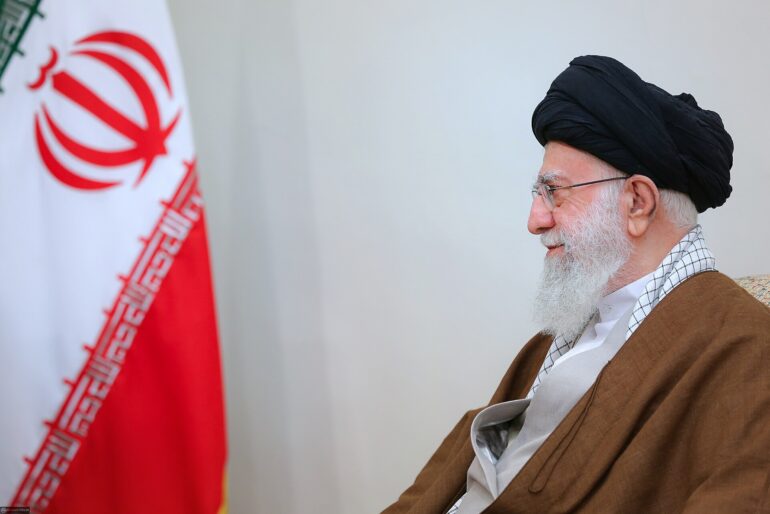In an extraordinary public admission on Friday, President Donald Trump reportedly asserted that he ordered Israeli aircraft to abort a planned strike on Iran’s Supreme Leader, Ayatollah Ali Khamenei, effectively saving him from what Trump described as a “very ugly and ignominious death.”
Speaking in the White House briefing room, Mr. Trump disclosed that he had intercepted Israeli jets en route to Tehran during a recent escalation between the nations.
“I SAVED HIM FROM A VERY UGLY AND IGNOMINIOUS DEATH,” he declared, underscoring his command to stand down as the “final act” in what he called a climactic operation. He suggested that without his intervention, Israel was poised to deliver a decisive blow to Tehran’s leadership.
Mr. Trump’s remarks come in the aftermath of “Operation Midnight Hammer,” a coordinated U.S. and Israeli aerial campaign targeting three of Iran’s underground nuclear sites.
He said the strikes had “obliterated” Iran’s nuclear infrastructure and asserted that he knew precisely where Khamenei was sheltered—but chose mercy. “I would not let Israel, or the U.S. Armed Forces…the greatest and most powerful in the world, terminate his life,” he said.
The president also slammed Khamenei’s characterization of Iran’s recent 12-day conflict as a triumph. “He got beat to hell,” Trump said, urging the Ayatollah to “tell the truth.”
He warned that American and Israeli restraint in the final moments had spared Iran’s leader, but hinted that future military action remained on the table, especially if uranium enrichment resumed at concerning levels.
In tandem with this admission, Mr. Trump confirmed he vetoed an Israeli assassination proposal against Khamenei—an assertion later corroborated by Israeli media.
This claim further highlights the delicate and clandestine coordination between Washington and Jerusalem in recent weeks.
Iran responded dismissively. Foreign Minister Abbas Araghchi confirmed that the “Operation” inflicted “excessive and serious” damage to nuclear facilities, yet shut down overtures toward further negotiation, stating that no path to diplomacy was being contemplated.
Analysts suggest that Mr. Trump’s comments reflect a strategic posture aimed at balancing force and diplomacy—using military dominance as leverage to compel Tehran toward compliance and inspection.
He reiterated support for deploying inspectors, including from the IAEA, to verify Iran’s nuclear intentions.
It remains unclear whether Iran will agree to renewed monitoring. Meanwhile, Mr. Trump’s claims are already fueling debate in Washington: whether his public revelation of thwarting an ally’s strike undermined Israeli autonomy or embodied cautious restraint.
Still, one message looms large: in Trump’s view, nuclear brinkmanship demands both overwhelming force and the statesmanship to rein it in—sometimes at the eleventh hour.
[READ MORE: Hegseth Insults Fox News Reporter]



